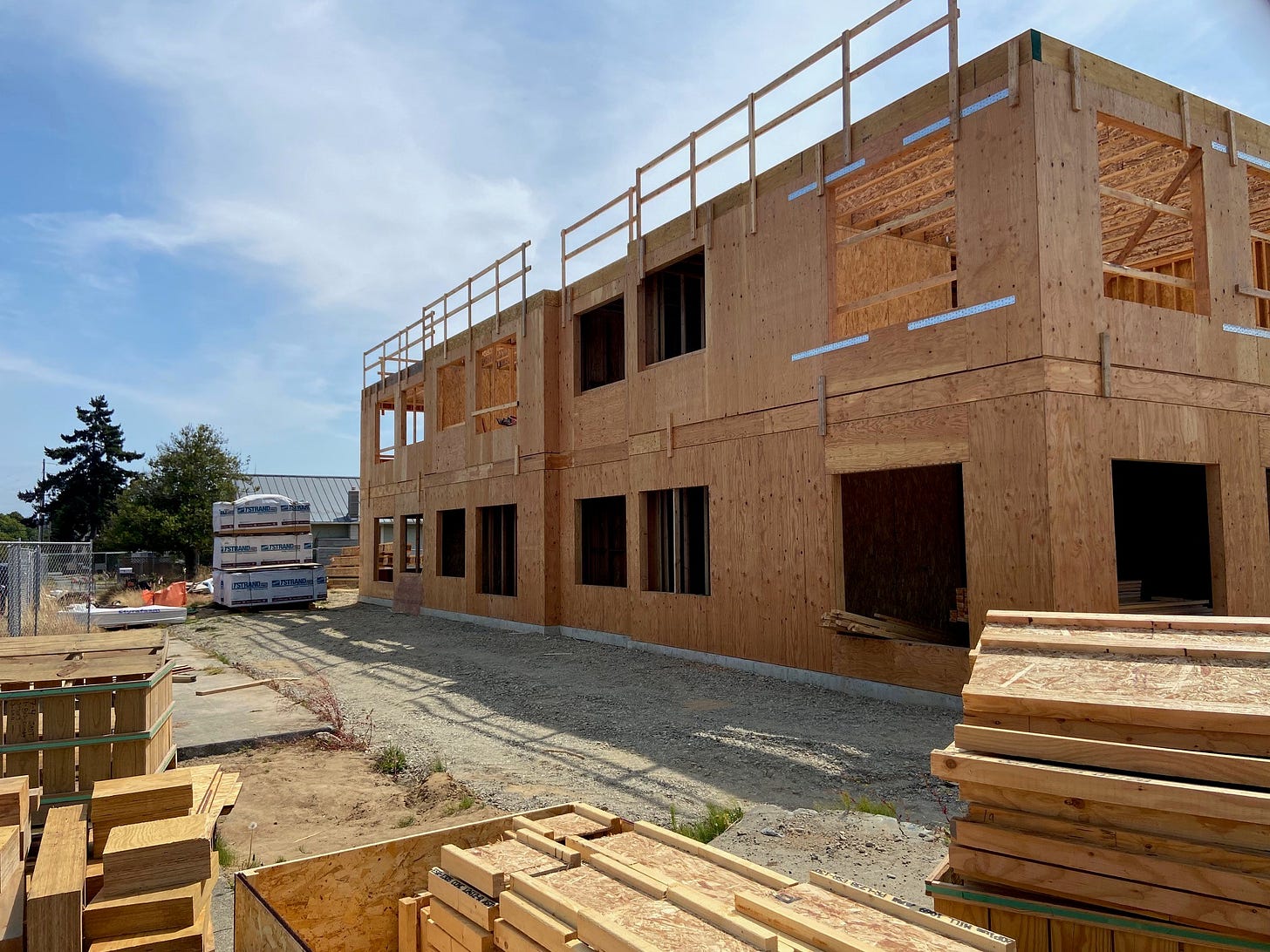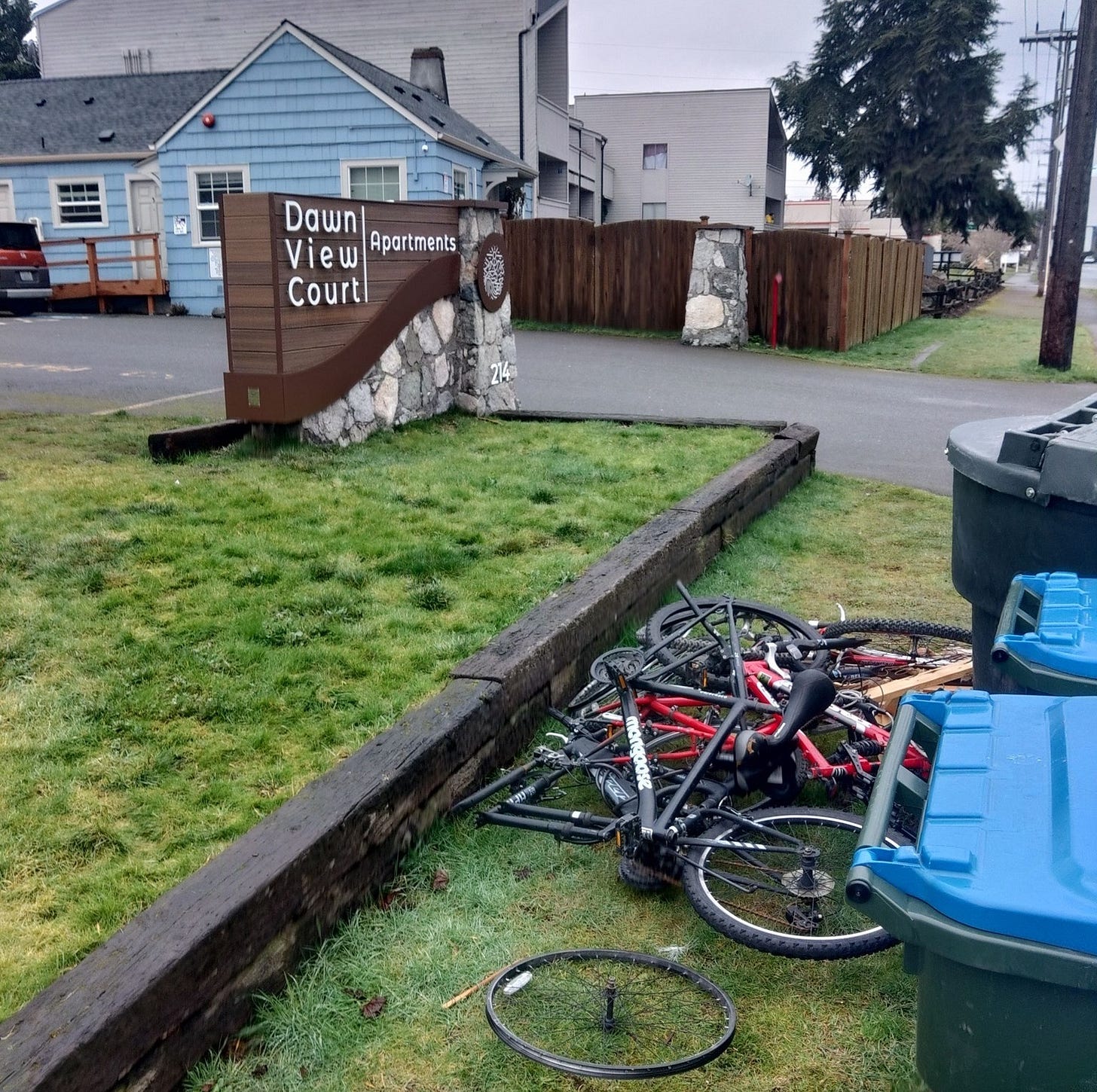Taxpayers have a right to know how their money is being spent — especially when $4 million was handed to Peninsula Behavioral Health (PBH) for its new North View housing project. Instead, they’ve been met with conflicting explanations, shifting stories, and a commissioner who insists it’s “not his issue” to ask questions. From dishwashers in homeless housing to restrictions on public comment, the contradictions point to a troubling pattern: when the public asks for transparency, local leaders accuse them of “micromanaging.”
When Peninsula Behavioral Health (PBH) first explained its new North View housing project — 36 units of “permanent supportive housing” at an average cost of $350,000 per apartment — one feature raised eyebrows: dishwashers in every unit.

PBH staff initially told CC Watchdog that dishwashers were “required.” But when state guidelines were produced showing they were optional, PBH admitted they were a design choice. That raised an obvious question: why are taxpayers footing the bill for luxury-level features in housing marketed as a solution to homelessness?
Dishwasher debacle devolves
At a recent Commissioners’ Forum, a public commenter asked exactly that. Commissioner Mike French, who campaigned on “robust public engagement,” offered this explanation:
“On the dishwasher issue, just recognize that there are often issues that are beyond anyone’s—so, for instance, the City of Port Angeles has infrastructure in the ground. In that neighborhood, there is not as much capacity as you’d like. You have to pay to put pipes in the ground if you want bigger pipes. Using less wastewater might save them a lot more money than paying to put all new pipes into the neighborhood.”
French admitted he did not know how the decision was made but speculated that “the professionals they hired” had recommended dishwashers:
“My guess is that’s why they’re putting dishwashers primarily, is to reduce the wastewater the whole facility uses so they don’t have to pay millions of dollars in upgraded infrastructure. Most likely that was a conversation between the city and the developer.”
That was not the same explanation PBH CEO Wendy Sisk had offered previously. According to Sisk, dishwashers were included because they wanted to “Make it as easy as possible for people to be successful.”
Conflicting stories, no documentation, and no clear explanation. That should have been the moment for county leadership to step in with facts. Instead, Commissioner French doubled down.
When asked again why he had ignored repeated emails seeking clarification, French responded after public comment:
“On the dishwashers, in the Commissioner Forum, I opined. I gave my opinions based on my experience as a Port Angeles City Councilman about the state of the wastewater system for the City of Port Angeles. I don’t have any direct knowledge around which pipe is what size and anything like that, but I gave my opinions. You chose to interpret those opinions differently than I intended them, and that’s not my issue, that’s your issue.
I would also say, I am not interested in micromanaging a developer, I want it to be easy to build. I want everyone to be able to build housing units. I want public agencies to do less in the way of permitting and requirements. I want us to remove our regulations and restrictions so that it’s easy to build.
You seem to be interested in micromanaging the developer. In this case, I am not. So, again, that is not my issue, that’s your issue. So that’s what I would say about that. So, I’m not intending to reply to your email because I’m not interested in the subject matter. I’m not interested in micromanaging it.”
The problem is that the “subject matter” isn’t trivial. Last year, commissioners approved $4 million in taxpayer funds for PBH’s North View project. PBH is not subject to public records law, meaning the only avenue for accountability is through our elected officials. And one of those officials has now said plainly: he’s not interested.
This isn’t the first time PBH’s projects have raised questions. Their last permanent supportive housing project, Dawn View Court, went 37% over budget after water pipes burst, drywall had to be ripped out, and newly installed copper was stolen. Costs ballooned to $4.8 million before the facility opened.
Apparently, no one was “micromanaging.”

Forget micro, is there any management?
Meanwhile, the county faces yet another historic budget shortfall. Commissioners have funded pizza parties for drug addicts, placed a poet laureate on the payroll, and are now asking voters to raise property taxes this November to cover “essential services.” They also support a $5 parcel fee to grow the Clallam Conservation District — an agency that admits it hasn’t tracked measurable water quality results in its 66 years of existence. When asked for data, the answer was: they’d try to get some.
But to expect answers, it seems, is to “micromanage.”
And while French claims he doesn’t like micromanaging, his record shows otherwise.
Guess who does like micromanaging
As a board member of the Olympic Regional Clean Air Agency (ORCAA), Commissioner French is supporting a new requirement that rural property owners obtain permits for all yard-waste burning. Explaining the proposal, French told the Board:
“The goal was simply to educate the public on how to burn safely… so people don’t accidentally start wildfires.”
For rural residents with no curbside pickup, composting, or recycling, burning is their only option. Yet Commissioner French supports requiring a permit — a rule that, ironically, micromanages the very constituents he dismisses as micromanagers for asking about taxpayer spending.
The same contradiction appeared during the push to reopen Towne Road. During the project, he went against the advice of both the County Engineer and the legal department. He paused completion of the road for a year and a half and insisted on a costly curb for what was supposed to be a rural county road. By dismissing expert advice as merely “hypothetical,” French micromanaged the project in ways that drove up completion costs by $1.5 million — draining both the county’s road fund and its REET fund.
That was micromanagement in the extreme: overruling professionals with decades of experience, adding unnecessary costs, and delaying the project for more than a year. Yet now when citizens ask him about those decisions, French says he’s “not interested in the subject matter.” He’s dodged questions about Towne Road for over a year.
Commissioner French’s micromanagement was on full display during the Towne Road fiasco. He allowed anti–Towne Road participants to share their screens on Zoom, while those in favor of the project were denied the same opportunity.

When one citizen attempted to use video during public comment, French cut him off:
“So, this is a limited public forum. You’re allowed to make comments. We’re not required to give you full access to every feature on Zoom.”
When questioned about the inconsistency, French replied:
“We’re not required to accept video public comments… We have policies in both our county code and our county administrative policies.”
And later, defending restrictions on public comment:
“We go over and above what the state requires because we want people to have an opportunity to provide feedback on general county business to us.”
Empty promises
The Board of Commissioners proudly states its mission is to put the “translated desires of our residents into action through effective communication,” to provide “prompt, responsive service,” and to “celebrate the diversity and inclusiveness of our residents’ contributions.”
But when taxpayers ask basic questions about how millions of their dollars are being spent, they are accused of micromanaging.
That isn’t transparency. That isn’t equity. That isn’t accountability.
Maybe it’s time for our commissioners to micromanage the budget, not the public.
Last Wednesday, readers were asked how much trust they had that the county commissioners would act in the best interests of ordinary residents after the recent CCD fee hearing. Of 299 votes:
0% said, “High trust”
10% said “Low trust”
90% said, “No trust at all”













